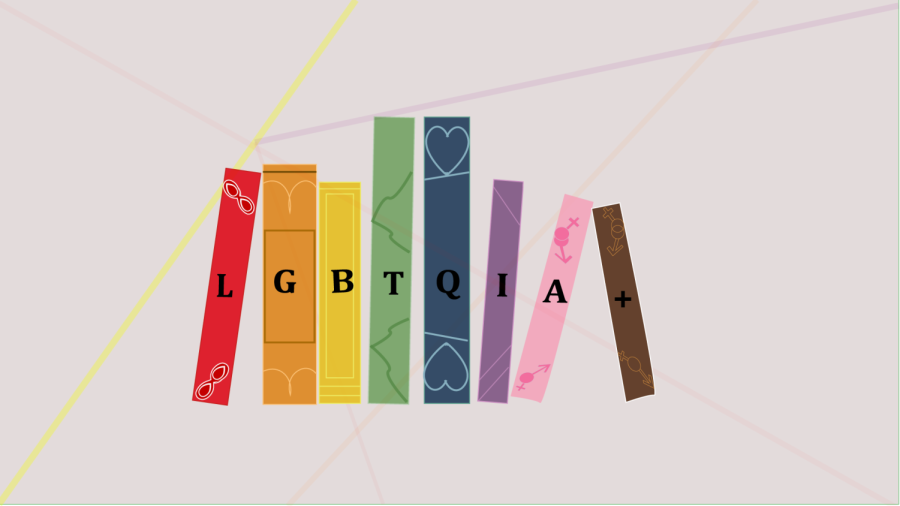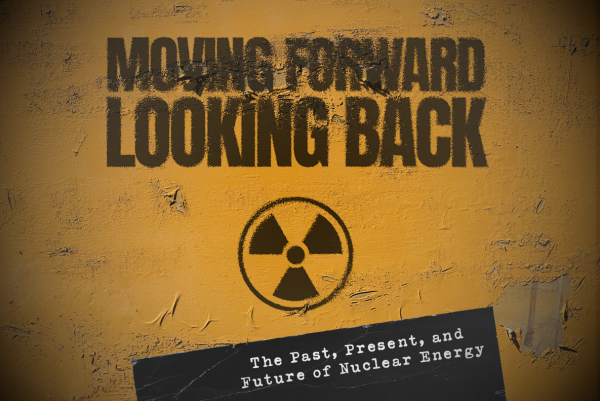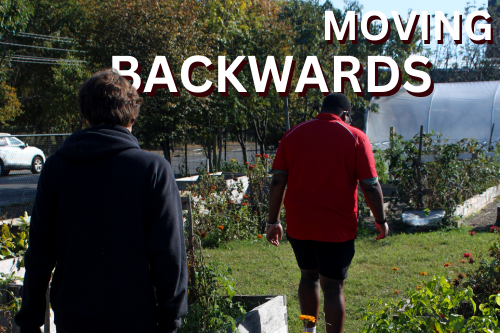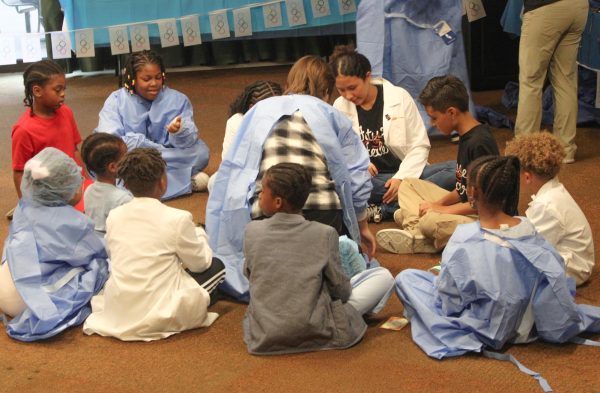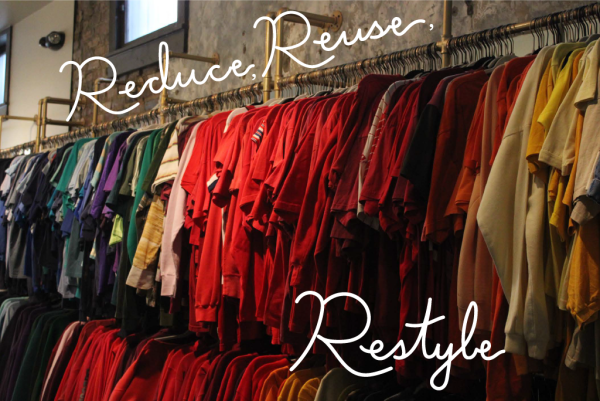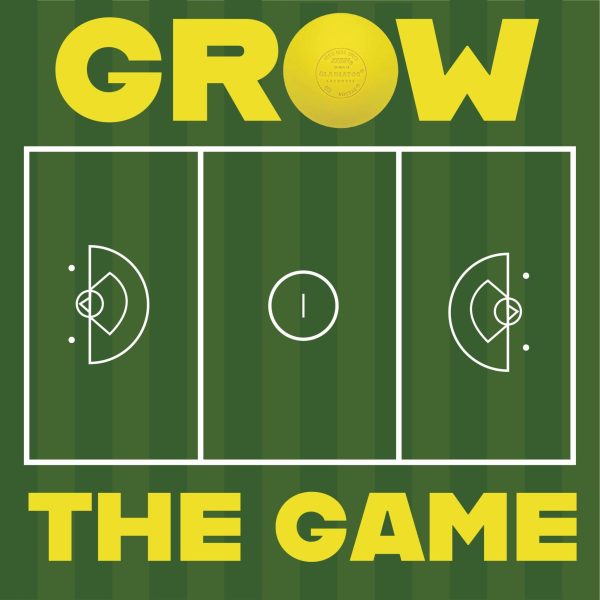Blank Pages
While arguably Senate Bill 5 focuses on encompassing individual beliefs and rights protected by the school, it also provides an opportunity for others to use the bill in potentially oppressive and, at times, malicious ways. Junior reporter Acacia Lopez takes a deeper look into the lasting impacts of this Kentucky legislation.
Imagine your favorite book — how it made you feel, the way you could relate it to your own life. I could recall the first time I realized the public library had a book on respecting, and understanding others’ pronouns — it was an enlightening feeling. I can also recall how I felt when the book was gone, the fear and disbelief was palpable. Well it was, then I found the book. I often wonder how others would have responded. That confusion would be the initial response: where did it go? Confusion then turns to aggravation — why can’t you find it? How do you read it now? After asking the librarian, they say that they can no longer display or provide that book in the school. A parent noticed their kid reading the book and didn’t approve. Before, this occurrence would’ve led to the book being checked back in and a lecture. Now, the parent can file a complaint against the school and prohibit their child from checking this book out. They are also liable to sue. How is this possible?
Senate Bill (SB) 5, is simply a number to many — a legislation mentioned in conversation but not commonly understood. To others, it’s so much more. This bill, in conjunction with others in Kentucky legislature, such as House Bill (HB) 173 and HB 30, works to establish a “complaint resolution” policy to aid in the concerns of parents about materials that they believe are “harmful” to students. This includes, but is not limited to, books concerning religious beliefs, sexual orientation, sexual preferences, and gender expression.
While arguably this bill focuses on encompassing individual beliefs and rights protected by the school, it also provides an opportunity for others to use this bill in potentially oppressive and, at times, malicious ways. Library Media specialist Kirsten Heckel from Waggener High School understands this all too well.
April 29, 2022 is a day that Kirsten Heckel will likely remember for a long time. After all, it was when her interactions with Kurt Wallace began Kurt Wallace, a man that has no connection to Waggener High School, sent a certified letter demanding personal reparations from the emotional litigation due to Heckel. The cause? A popular African American queer book titled “All Boys Aren’t Blue.” Wallace’s reasons, as he wrote in the letter, were that the book made him “complicit in the felony of acquisition of obscene material and sexual exploitation of minors in grooming and gender expression.” While Wallace’s beliefs are his own, his letter calls into question whether Heckel is responsible or not.
“I just dismissed it and ignored him, thinking it would go away, that it was a one time thing, and then later on in May, I received another letter from him,” Heckel said.
This was a cause for concern. After all, these accusations are not something to be taken lightly.
“What I was worried about was stuff that I can’t control … I don’t know how the media will spin things and make me look. ‘Kristin Heckle has dirty books in our library.’ It makes me look discredited as a professional,” Heckel said.
Heckel worried about how she would be depicted on social media, and that others act similarly to Kurt Wallace. Ultimately, SB 5 allows other parents to do the same as Wallace. However, Heckel had the full support of Waggener High School’s legal team. By December of 2022, in small claims court, the judge dismissed the case, taking the pressure off Heckel’s shoulders. This decision only left her more determined.
“If they don’t know me, then I don’t have a right to know their opinion of me, and that’s fine. They’re not my purpose. My purpose is my students,” she said.
Having relatable stories in school libraries is essential for students to comprehend their emotions and begin to accept themselves for who they are.
“It’s an African American boy who grew up queer. Yes, this book has to be in the library, because this is someone’s story that someone can relate to,” Heckel said.
Her resolution to support this book and what this means for her students can impact many teens struggling with their sexuality and identity.
“I think it’s common knowledge that if someone is struggling with their sexuality, it’s more than likely they’re having some mental health issues. To know that someone else has been through it and is on the other side — I think that’s really important to have,” she said.
Unfortunately, Heckel is only at the beginning of a long list of librarians embroiled in the argument over the banning of LGBTQ+ books in schools. Across the country, there are many Media Specialists dealing with a similar issue.
For example, in Gillette, Wyoming in October of 2021, community members filed a criminal complaint stating that the Campbell County Public librarian was guilty of “disseminating obscene material to minors.” Martha Hickinson, a high school librarian in Annandale, N.J. dealt with two parents who announced that two books have “pornographic” depictions, and Hickinson was shamed for allowing their 16 year old son to check out said book in the school library. An ongoing problem has emerged within libraries, and there is not a strong push toward ceasing this.
Even now, years later, that emotion, the worry, is still there. Banning books, banning stories told about anger, confusion, love, and loss would be detrimental to all students, especially in the LGBTQ community, an environment that continues to foster even through persecution and discrimination – an environment that works to uphold values of respect and compassion for all. These incredible environments are a safe place for so many of the LGBTQ youth struggling with mental illness, acceptance, and understanding. Banning these stories will undoubtedly hurt many.
Donations are collected through The Publishers, duPont Manual High School's booster club for J&C. On The Record relies completely on sponsorships, advertisements, and donations to produce and distribute each issue. Please consider donating to our cause, and helping the student journalists of OTR amplify youth voices for years to come.

Acacia is a senior and the HR coordinator for On The Record. This is her second year on the staff, and she enjoys working with the Marketing team on communicating...


